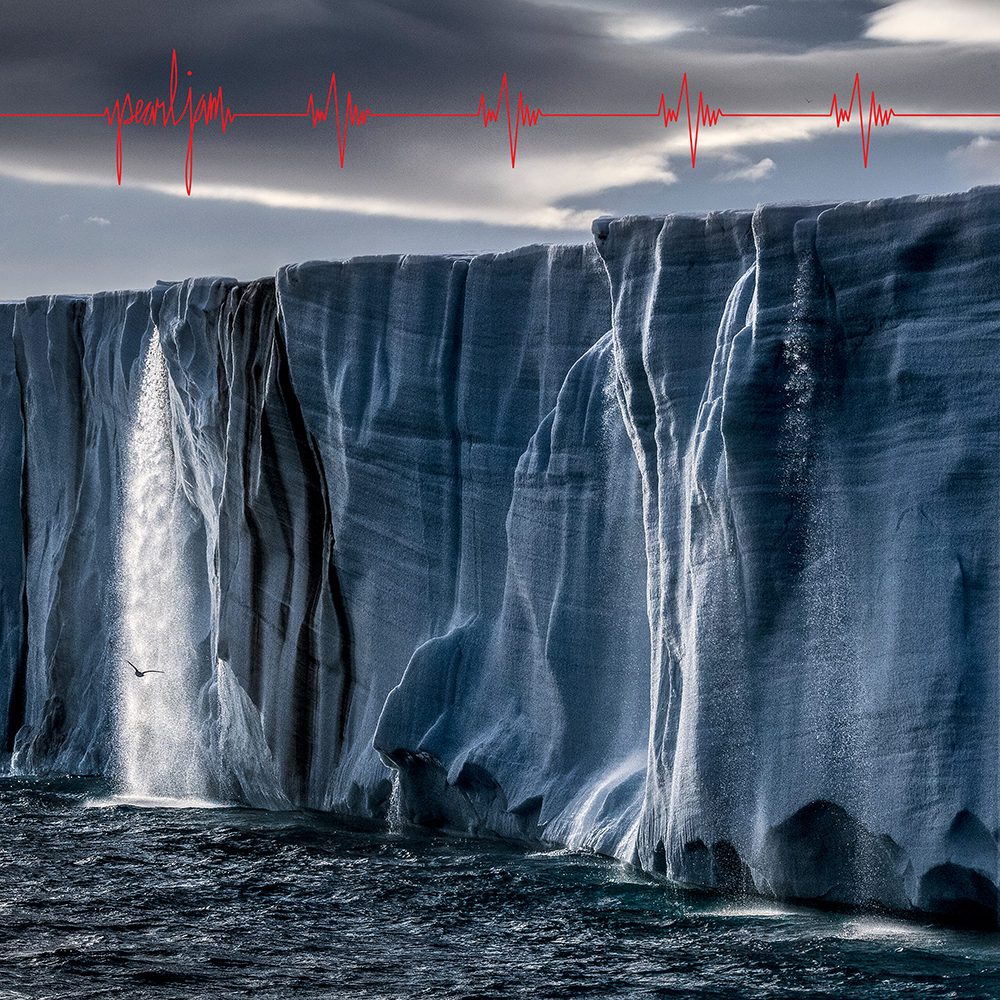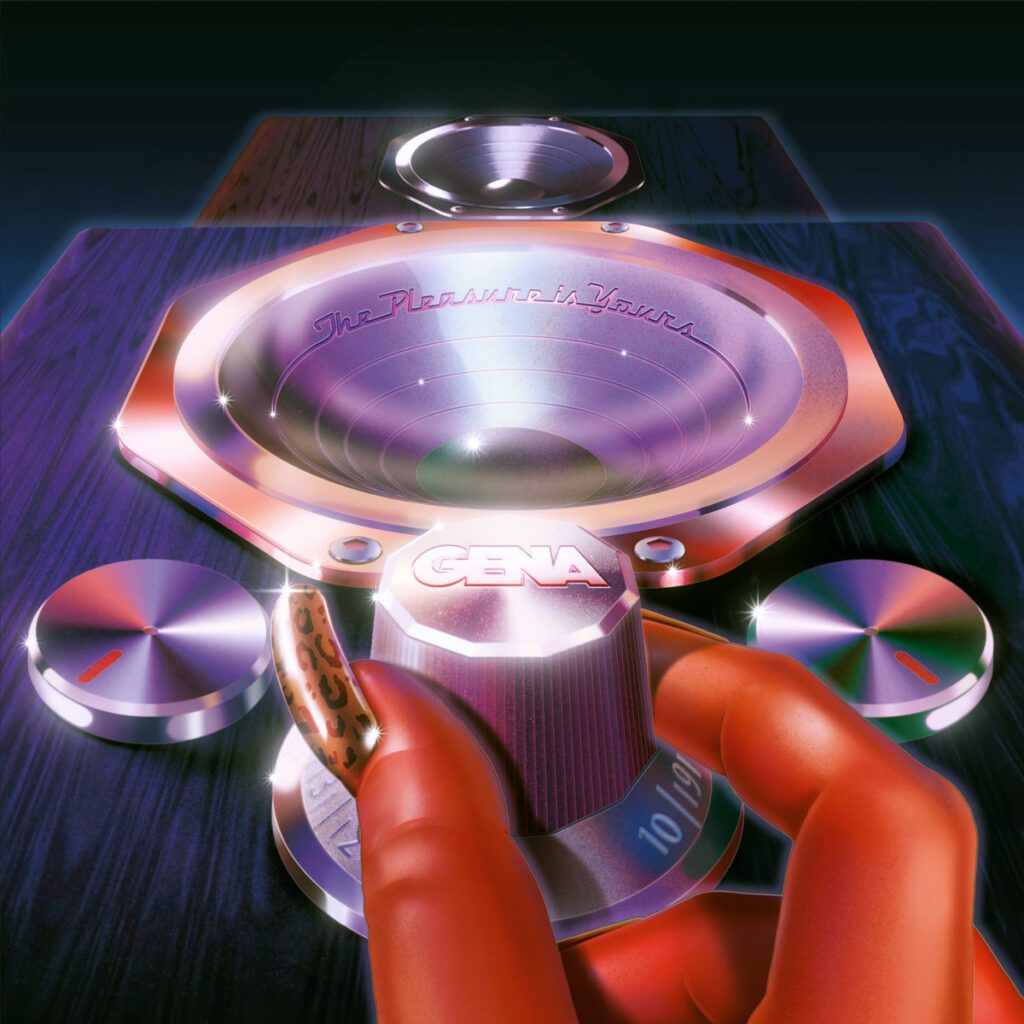Admit it, you were worried about this one, right? For most of the last decade, Pearl Jam seemed to be slowing down. 2013’s Lightning Bolt quickly faded into the distance. Then came 2018’s stand-alone single, “Can’t Deny Me,” a cringe-inducing misfire with awkward #MeToo-inspired artwork. This was followed by the sad news that the band was ending its legendary Ten Club Singles Series, where, since 1991, they’d carried on a unique clandestine musical conversation with their core fan base through limited edition 7” releases. Their last tour included stops in only four cities (Seattle, Missoula, Chicago and Boston) in North America. The band seemed focused on other projects, like frontman Eddie Vedder’s Ohana Music Festival in Dana Point, California, that, ironically, Pearl Jam has never actually played. For the 30-year-old rock band, the future didn’t look great.
But then a series of mysterious digital billboards began appearing around the world featuring images from nature, a new electrocardiogram-style Pearl Jam logo, and the word Gigaton. Then, a week later, they released “Dance of the Clairvoyants,” a startling, synth-driven single that got everybody talking again. It’s a divisive song, clearly inspired by The Talking Heads and early 2000s dance-punk. It signaled a potential new direction for the band and a sonic expansion incorporating more electronics. Fan forums and comment sections suddenly came alive. Was this a betrayal of their classic rock roots? Was this their version of The Rolling Stones’ “Miss You?” Was Gigaton (which ended up being the album name) going to be Pearl Jam’s disco album? Perhaps most interestingly, the band quickly released three music videos for the track—an almost unthinkable decision since Pearl Jam has purposely avoided videos in favor of live performance footage and feature-length documentaries since 1998’s “Do the Evolution.”
A month later, “Dance” was followed by “Superblood Wolfmoon,” a playful, haunted hayride rocker, featuring another video, this time an adorable Tiny Concert animated film.
“Superblood” seemed to reassure many fans that the album would not stray too far from Pearl Jam’s defining aesthetics, most recently reinforced on Lightning Bolt and 2009’s Backspacer, both produced by long-time collaborator Brendan O’Brien.
As it turns out, Gigaton has a little something for everyone. It’s a complex, dynamic album full of earnest emotion and subtle humor. Its form factor recalls both 1996’s No Code and 1998’s Yield, two wildly underrated records that provided a blueprint for the band’s sustainable growth and ongoing appeal by showcasing their incremental, yet relentless, experimentation.
If you’re somehow new to Pearl Jam, the stomping opener “Who Ever Said” will essentially explain the formula they’ve used to fill stadiums since their 1991 breakthrough album, Ten. Take ‘70s hard rock swagger and blend in West Coast progressivism, add ferocious guitars, pounding drums, then cover the whole thing with the strongest baritone voice of the ‘90s. Its chorus also contains Gigaton’s mission statement: “Whoever said ‘It’s all been said,” gave up on satisfaction.” Here’s Vedder, speaking directly to us, promising this isn’t over by a long shot. It comes across as both reassuring and defiant. And, thankfully, the rest of the album largely delivers on that commitment.
If you’re attracted to the band for ‘90s nostalgia, “Quick Escape” is just what you’re looking for. It’s got a big Led Zeppelin intro and a soaring Seattle grunge chorus. The music was written by bassist Jeff Ament and Vedder’s lyrics take a more sophisticated approach to political commentary than say, “Bu$hleaguer” from 2002’s Riot Act. Many of the songs on Gigaton seem to tackle multiple subjects at once with confidence and charm. “Alright” is a hymn of resistance and reassurance in the face of personal and/or environmental challenges. “Seven O’Clock” deals with loss and grief, encouraging listeners to “Swim sideways from this undertow and do not be deterred.” While “Buckle Up,” with words and music from guitarist Stone Gossard, directly addresses death and riffs on the bioethics oath of “Primum non-nocere” (“First, do no harm”).
If you’re a super fan, Gigaton is packed with Easter Eggs. On “Never Destination,” Vedder references the protagonist of Sean Penn’s book Bob Honey Who Just Do Stuff. “Take the Long Way” was written and sung by drummer Matt Cameron and features the first female backing vocals on any official Pearl Jam release (credited to Meagan Grandall aka Lemolo). And there’s a new producer involved, Josh Evans, who also played keyboards, mixed, and co-engineered the album. O’Brien is on a few tracks too, notably playing the celestial keys on “Retrograde,” written by guitarist Mike McCready. But only Evans (along with the band) is credited as producer. It’s his first big album in the role and he did an excellent job creating a pervasive warmth throughout.
The band hasn’t sounded this engaged and excited since Bill Clinton was president. They’re about to embark on a proper world tour (which is currently being rescheduled in the wake of COVID-19). Many of these songs, especially “Dance of the Clairvoyants,” will add new depth to their already epic live shows. They’re also scheduled to play one very special new venue for the first time: Vedder’s Ohana Festival in September.




